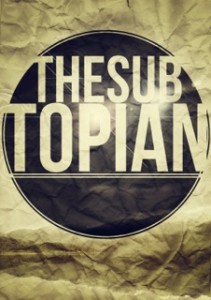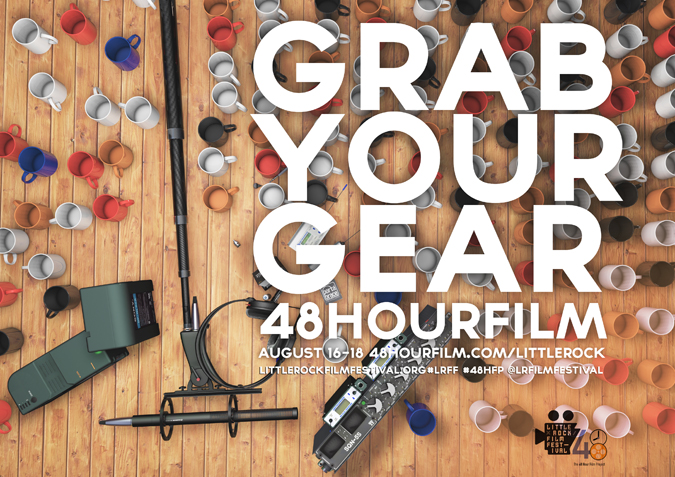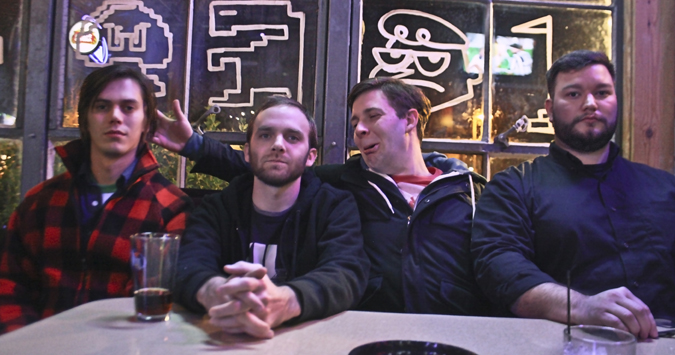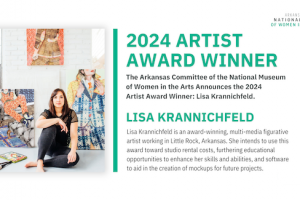The Subtopian holds Kickstarter campaign to launch print edition

WORDS / KODY FORD
Trevor Richardson, novelist and founder of the online magazine The Subtopian, has decided to launch it as a newspaper dedicated to arts, news, literature, and helping creative people build the resources necessary to succeed. It will be a monthly paper and, like all publications, will be funded by ad sales, but with this Kickstarter goal they will have the money to put out The Subtopian for six months and a chance at a stable beginning to an awesome project. While The Subtopian is based out of Portland and focuses on the region, they do publish writers from around the country. We spoke with Trevor about his campaign. You can donate here.
 IC: Why Kickstarter, why not fund the project yourself?
IC: Why Kickstarter, why not fund the project yourself?
The easiest answer is I don’t have six thousand dollars just sitting in my bank account. I have paid out of pocket, and continue to do so, on a lot of elements of maintaining The Subtopian, but if I were to fund it myself I would, at best, be able to put out one issue with no guarantee of a follow up. Kickstarter is an amazing idea that gives resources and opportunities to people that may otherwise have none. In the past, it would have meant taking out a loan, going into debt, or just not doing something like this at all, but with the support of like-minded individuals you can do almost anything now. And you don’t need the involvement of a bank, corporation, record label, publishing company or other big business. You can just do stuff, it’s awesome.
IC: Why are you only looking for funding for six months’ worth of print copies? How do you hope to keep the magazine rolling after the first six issues?
Well, I had to cap it somewhere. I can’t just ask for infinity money. I considered only aiming for three, and at the rate the pledges are coming in I almost wish I had, but I thought six months is a long time and if I couldn’t get stabilized by then I probably didn’t deserve to. The plan, like all publications, is to raise funds through ad sales. That’s how they do it at The New York Times, The Onion, or The Portland Mercury, it’s kind of the only way to do it. Subscriptions don’t bring in much. It’s barely enough to cover the mailing costs in most cases, but the ad sales can be very beneficial and pretty much make or break a paper. We have already sold some ad space to some small businesses and we are offering discounted ad space as a reward on the Kickstarter page, so anyone with anything to share in print is most welcome to grab up a corner of the paper.
IC: What sets this newspaper apart from regular newspapers that report the news?
The main thing that makes The Subtopian unique is our desire to look deeper into the news for meaning, insight, and direction for the future. It’s not just a cold reporting of the facts, it’s futurism, journalism, and humanism rolled into one. We are looking for signs of things to come, ways to prevent some coming darkness, and glimmers of what a better world may look like. I have always maintained that humanity can build anything, if we have a vision for what it is we want to build, but when it comes to a better civilization, we’re often blind. Democracy is the best we’ve come up with so far. Subtopian is hunting for the specs to Utopia by reporting on cool new projects, organizations, or uplifting tales of the good side of human nature. But that’s not all of it, we also write about the dark side of things, what they might mean if they continue to go unchecked, and what might be done to stop them. We are in between the two, Utopia and Dystopia, hence the name, Subtopian.
IC: What do you hope to accomplish by providing a literary newspaper to the public?
My personal vision for “Utopia” is people taking control of their own destinies. When I see an artist bypassing the system and putting their stuff out there, or people shirking all of the infrastructure and regulation of today’s world to just feed people or give them a book to read, I see hope. By writing stories that say, “Look, this here, this is what we all should be doing,” I believe that I am adding to the great conversation we are all having about how to improve human existence.
But it’s not all just abstract stuff like that. I also try to take a keen interest in specific people and find ways to help them develop their craft. We have done spotlight issues on a writer that I found exciting and tried to give them the push they need to get started confidently. I hope to take that idea ten times farther once we have a tangible presence in our city and country. When we create something people can pass around to their friends, that is earning respect and revenue, I will be able to take all of those new resources and create the larger vision I have had in my mind for years.
I want to be a collector of stories no one else is hearing. I want to publish the tales of the homeless, and prisoners, and kids still in high school – people no one is listening to, and I want to do it on the pages of a publication that people can grab on any street. I want to be able to say, “This is an awesome new talent.” I think about the influence celebrities could have if they used it, channeled it in the right direction, with a sentence they could make a career, but they tend to shirk away from people because they want a private life – and rightfully so. When I had that realization, it occurred to me that I could build a place, an idea, and try to make that idea the celebrity. Then, with a sentence, I could say, “This new musician deserves your attention,” or “Read this guy’s book.” And it would actually make a difference in the lives of that musician or writer or painter or whoever.
That’s my goal, lofty and implausible as it sounds. I don’t want to be famous. I want Subtopian to be famous so I can help people, and this move toward print is just the next phase of my plan.
IC: How will this enrich the community, both artistically and socially?
I have always said that I didn’t want to just build a paper or a magazine, I wanted it to be a place. It’s a hub for different types of people from different artistic backgrounds and lifestyles to gather, share their work, make connections, and grow. I see this as a place where a writer of ours can learn about an illustrator we interviewed and make a connection to create a graphic novel. I see musicians meeting other musicians through the pages of our paper. Writers getting notoriety, other interviews, promotion for books, all of that because this is a place not only where art comes together, but a place where new, young, even unproven art comes together. Most publications will write about people that are established or “up and coming,” whatever that means. I want to find the people no one is listening to yet and help them become up and coming. That’s how we’ll make a difference artistically. And socially, the goal in everything is to say that the system can be changed, that the hope for the future is to find a way to build a better model and to make the old one obsolete. The famous engineer-philosopher Buckminster Fuller said that, and I believe it. I don’t always know what the new system should be, but through the cooperation and community we are trying to build at Subtopian we will have, in effect, built a literary, creative think tank that publishes a monthly dialogue on how we can do better.
IC: This seems like only a local project, how will it benefit people outside of the Portland Metro area?
We will be doing the bulk of our distribution in Portland at first, only because that’s where we live. But this will not be exclusive to Portland. We write about national and international news. We publish fiction and poetry from people all over the place. And we want to hear from new talent no matter where they are from.
Subscriptions will be available for people out of town that want to get the paper, and I hope to eventually grow to such a point that I can be sending it to cities around America, but right now my focus is just getting out issue one.
The other huge benefit to doing this in Portland is that the nation is looking our way right now. Portland has become the next creative boom town and it is getting a reputation for its do-it-yourself approach to everything. I think this makes us uniquely qualified to accomplish our goals and I will know I succeeded when we interview a band from New York, people in Portland read about it, and then people in Seattle start listening to it. Or something like that. You get the idea.
IC: How will switching from an online magazine to a print magazine change the way Subtopian functions?
We’re not switching, we’re expanding. I will maintain the online presence and we are even going to start making each issue available for free download on iTunes in addition to the already numerous places its distributed online. The main reason I want a print presence is to have something I can put in people’s hands at literary events and, above all, to be able to give our writers and contributors something they can take home and show their moms.
I believe in the power of stepping back to the old way of doing things, but it would be foolish to reject the influence and scope of the Internet. Basically, we’re having our cake and eating it too. I view everything as a tool for future success, the Internet is a tool, printing the paper and putting it out on the streets of Portland or Seattle or Austin, wherever, this is also a tool. All of it is intended to drive people toward what we are doing.
IC: This seems to be the first step in a grander plan, should the Kickstarter prove successful, where will you take things from here?
Subtopian has started a small press endeavor that needs cultivating, I plan to do artistic events with music and writers and other creatives all hanging out in one place, and as things develop we will be expanding beyond what you can currently see online. Right now we are very “writer heavy,” the move to print will mark an expansion and a reimagining of this project. I want to talk about everything, music, news, visual arts, film, lifestyles, even less expected forms like video games and fashion. In my opinion, all of it is part of the mosaic of American life, and what we are talking about at Subtopian is the good and the bad of American life and the power of the individual versus the institution of art, law or thought.
IC: How will having a print literary newspaper help the Subtopian and Subtopian Press as a whole?
The main thing is it legitimizes us. The internet is full of people that realized they can make a magazine or a blog for free. Some of it is amazing, some of it is terrible, but the reason books and papers are important is it takes a concerted effort and follow through to realize. You can’t just push a button and have a newspaper. You can’t just upload a document and have a great novel. It takes effort, promotion, design, editing, research, talent, ambition, support, and funding. The point is, while I respect the Internet’s ability to empower the individual to share their voice, it has the side effect of making everyone think they are important and talented and “making it.” This may seem like a negative attitude, but it is often true, we are swimming in intellectual property and we could never dream of experiencing all of it. Creating this paper helps Subtopian stand out from the crowd, it shows we have the drive and the discipline to create something more.
Plus, as I said before, it is a great promotional tool for everyone involved, it’s something you can put in people’s hand and say, “I do this.” That’s what I want for all of the people that get involved in Subtopian. No matter what people say, there is something different about holding your story in your hand. Publishing has gone digital, it has, and it is more efficient that way. It’s like, a digital file is a more efficient form of transferring and storing music, but we all know that nothing beats putting on a vinyl record, hearing the crackle of the needle and going back in time. The printed word is the literary version of that experience.
IC: Any parting words?
We are open to everyone. Send us an email, submit a story, and share an idea for how Subtopian can present your work in a way that will make a difference in your life. We want to do that. I don’t just want your fiction, I want you, your life story, and I want to help you build your future. Doing that helps me build my future as a writer, publisher, and arts advocate. I need you.
And, it may go without saying, but the people that pay into this process are going to have a leg up on the rest of the crowd because they’ve shown me the enthusiasm and support I already know is necessary to make an experiment like this work. So support us, contribute what you can, share a thought and we will find a way to tell your story.





Comments
Comments are closed.